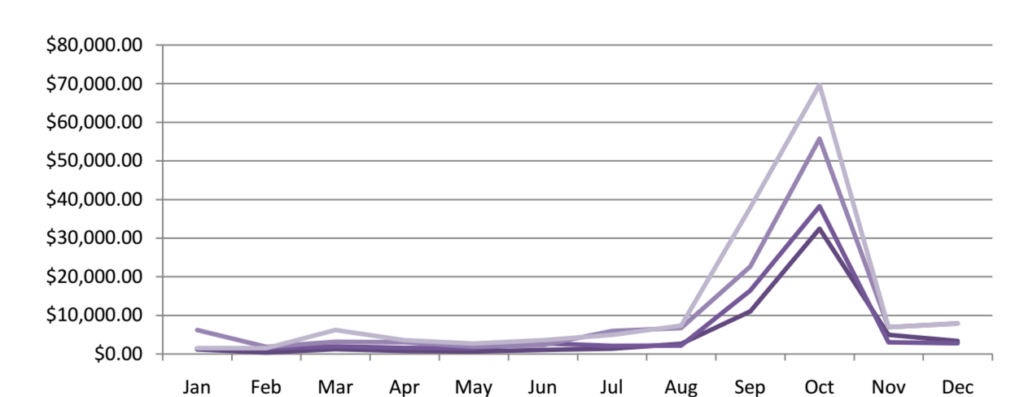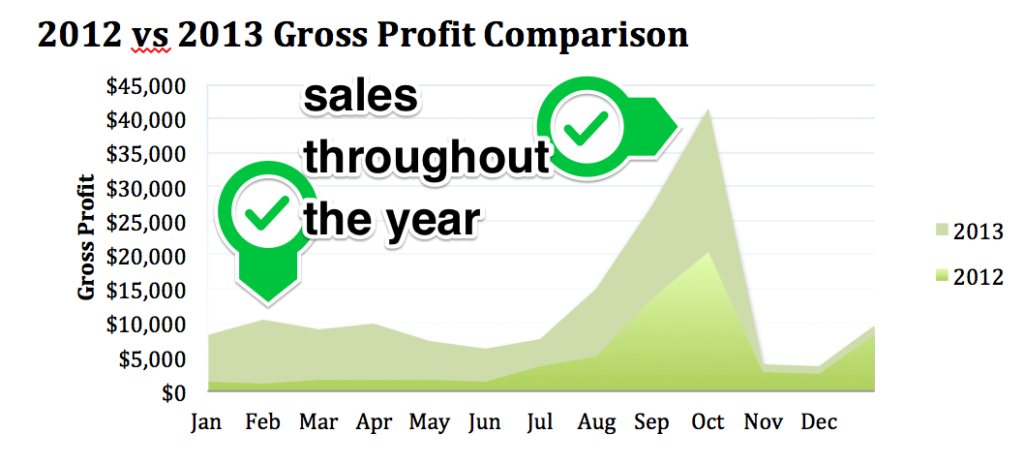Topics:
Never Miss a Beat - Get Updates Direct to Your Inbox
FILTER:


The Good, The Bad, & The Ugly About Selling Seasonal Websites
By Quiet Light
With Halloween just around the corner, I decided it would be an ideal time to talk about selling seasonal websites. If you are planning to sell a seasonal website, there are some things you need to know in advance to make your selling experience as painless as possible.
It is tough to sell seasonal websites as, by their very nature, few buyers are interested in buying them after their season. Try selling a Halloween website on November 1st or a Christmas website on December 26th, and you’ll see what I mean.
So if you want to sell a seasonal website, there are some things you need to do to make the site look more appealing to a buyer. Even though the vast majority of potential buyers out there will not touch a seasonal website with a bargepole, there are some buyers who actively look for such sites. So all is not lost.
Why Seasonal Businesses Fail a Basic “Risk” Test
There are four fundamental principles that drive value in an online business – risk, growth, transferability, and verifiability. A website business that exhibits low risk, good growth prospects, is readily transferable, and has excellent documentation will always get a great valuation.


Seasonal businesses, however, fail in one regard when it comes to risk, and it is very difficult to come back from that.
When we evaluate a website for areas of risk, there are five primary areas of focus. One of these is called, “external dependencies”. This is when any aspect of your company is dependent on an outside business, event, or timeframe.
Seasonal businesses typically fail the external dependencies test, simply because they are dependent on a pre-defined timeframe to earn all of the revenue for that year. Examples include tax season that would see a mass exodus of online traffic after April 16th.
Every seasonal business has this problem. Add in the fact that every mistake is amplified, implementations of split tests will likely have to wait for a year, and making any adjustments mid-season comes with significant risks, and you can see why potential buyers are often scared to invest multiple years of earnings into a seasonal business.
The Case For Seasonal Businesses
I’ve just told you why a seasonal business is risky, so don’t buy one, right? Well, you may be surprised to learn that there are people who actively look for such sites. Crazy or savvy? You decide.
The biggest advantage for these businesses is, of course, the fact that the entire year is mapped out for you. So you can plan your vacation months in advance, knowing full well when the quiet period will be coming.
The quiet period is also an excellent time for rolling out new website features and testing them, without the stress of the site crashing, along with your profit margins. You can create your entire sales strategy for the year in advance, and prepare all of your inventory. Then when you open the virtual doors, and the crowds surge in, you will see your revenues increase (hopefully), giving you a huge rush in the process.
Maximizing The Value Of Seasonal Businesses
So far I have shown you some pros and cons to selling a seasonal business. Now we need to examine ways how you can make your site more viable. This way, you can get more money when it comes time to negotiate the fine print with an interested buyer.
The trick is this – the more you spread out your earnings, the more value your site will gain.


What does this mean? It means offering more to your customers than just your standard service. For example, a Halloween-related business can branch into general costumes and party themes. For companies that match accountants and people with tax needs, they could offer auxiliary services such as general financial content, books, magazines, related software – anything that has year-round revenue.
The advantage of this is that if your season was less than stellar, you have a backup source of revenue coming up. Even if you only make a few dollars on this backup income, it will show a potential buyer that your site has year-round appeal.
In Conclusion
Every online business has a silver lining. Instead of a seasonal business having a handicap that threatens to cripple its value, it can instead turn into an attractive site for someone who likes to know when they are working, and when they are vacationing. You just need to know how to package things the right way.





